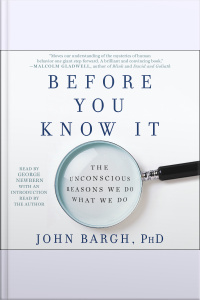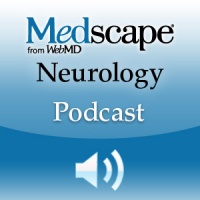Sinopsis
New research and clinical trials yield frequent developments in neuroscience and mental health. ReachMD welcomes an array of leading thinkers who lend their focused expertise to these principles, central to human function and ability.
Episodios
-
Occipital Nerve Stimulation for Patients With Intractable Cluster Headache
18/02/2009Guest: Peter Goadsby, MD, PhD Host: Mary Leuchars, MD Occipital Nerve Stimulation has recently emerged as a novel form of therapy for patients with intractable cluster headaches. Could it be the hallmark of a new era in stimulation therapies for primary headache syndromes? Joining host Dr. Mary Leuchars to share insights on this subject is neurologist Dr. Peter Goadsby, director of UCSF's Headache Center and a world expert on trigeminal autonomic cephalgias, or TACs.
-
Migraines and Beyond: Narcotic Therapy and Pain Control
16/02/2009Guest: Joel Saper, MD Host: Mark Nolan Hill, MD Many physicians today feel overburdened by the task of pain management. The current state of pain management stands in sharp contrast to years past, when our options were once relatively limited in the treatment of pain associated with headaches and other ailments. When is it appropriate to prescribe narcotics, if at all, for these conditions? Dr. Joel Saper, director of the Michigan Head Pain and Neurological Institute in Ann Arbor, Michigan, recounts how physicians' sensitivities have changed over the years. Are we now too sensitive to pain control? Dr. Mark Nolan Hill hosts.
-
When to Prescribe Opioid Therapy for Headaches
16/02/2009Guest: Joel Saper, MD Host: Mark Nolan Hill, MD Though many therapies exist for the treatment of headaches, some chronic headache cases do not respond to prescribed therapies. In a portion of these cases, opioid medications are offered to help patients find relief. But prescription of opioids can present additional problems, including increasingly recurrent headaches. This leads us to the question: which of our patients should receive opioid therapy for their headaches? Dr. Joel Saper, director of the Michigan Head Pain and Neurological Institute in Ann Arbor, Michigan, examines this critical question and much more with host Dr. Mark Nolan Hill. Which patient populations are most vulnerable to the potential problems associated with narcotic therapy? Are we properly advising our patients on the risks of narcotic misuse and overuse, as well as the importance of dose limitations--and if not, how can we improve ...
-
Managing Trigeminal Autonomic Cephalgias
16/02/2009Guest: Peter Goadsby, MD, PhD Host: Mary Leuchars, MD Trigeminal autonomic cephalgias, or TACs, and their classifications are enough to give any clinician a headache. How can physicians better appreciate this condition to enhance clinical practice? Dr. Peter Goadsby, director of the Headache Center at the University of California, San Francisco, Medical Center and a world expert on TAC, joins host Dr. Mary Leuchars to update listeners on this unique group of headache conditions.
-
Benefits of Prazosin Use for PTSD Patients
16/02/2009Guest: Murray Raskind, MD Host: Lee Freedman, MD The sleep disruptions and irritability that often affect patients with post-traumatic stress disorder (PTSD) can be challenging to treat with traditional psychotherapy or pharmacologic treatments. Host Dr. Lee Freedman welcomes Dr. Murray Raskind, professor and vice-chairman in the department of psychiatry and behavioral sciences at the University of Washington School of Medicine, to discuss the benefits of using prazosin to treat PTSD symptoms.
-
Considering Cognitive-Enhancing Drugs for the Healthy
12/02/2009Guest: Henry T. Greely, JD Host: Cathleen Margolin, PhD How might society best respond to the growing demand for cognitive-enhancing drugs by healthy individuals? That's the overriding question posed in a recent article published in Nature, written by a team of authors led by Henry Greely, professor of law and director of the Center for Law and the Biosciences at Stanford University. Mr. Greely joins host Dr. Cathleen Margolin to evaluate the appeal and the risks of drug-propelled cognitive enhancement, from safety considerations for healthy individuals using such medications, to the fairness of comparing the achievements of those who use versus those who do not, and the potential for coercion by superiors aiming, in theory, for enhanced performance from subordinates. One other question they will consider: is there a moral difference between cognitive enhancement through pharmaceuticals versus enhancement through sleep or nutritionally beneficial food products?
-
Complex Regional Pain Syndrome
11/02/2009Host: Michael Greenberg, MD Guest: Anne Louise Oaklander, MD, PhD How is complex regional pain syndrome (CRPS) distinguished from chronic or phantom limb pain? Can something as simple as a fracture or blood drawing trigger this condition? Dr. Anne-Louise Oaklander, associate professor of neurology at Harvard Medical School, joins host Dr. Michael Greenberg to discuss the intricacies of neuropathic pain. Since CRPS is rare, at what point should a physician suspect CRPS, and can this condition be treated?
-
Sensation and the Brain: Case Study of an Itch
11/02/2009Host: Michael Greenberg, MD Guest: Anne Louise Oaklander, MD, PhD An HIV-positive patient developed shingles. After the shingles healed, this patient began experiencing a very severe unremitting itch, which caused her to scratch through her own skull while sleeping one night. How is this possible, and what are the mechanics of itch that would allow a patient to feel no pain from scratching? Dr. Anne Louise Oaklander, associate professor of neurology at Harvard Medical School, reveals the pathophysiology of neurological itch. Is itch really just low-level firing of pain neurons, or is itch entirely distinct? Dr. Michael Greenberg hosts.
-
The Role of Neurosurgery for Patients With Refractory Depression
10/02/2009Guest: Aviva Abosch, MD, PhD Host: Leslie P. Lundt, MD Increasingly, depression is viewed a systems-level disorder. For patients who are refractory to the all traditional therapies, surgery on the brain may be answer. What are the benefits, and how is psychosurgery different than it was 50 years ago? Dr. Leslie Lundt is joined by Dr. Aviva Abosch, director of the Epilepsy and Functional Neurosurgery Program, and assistant professor in the department of neurosurgery, at the University of Minnesota Medical School in Minneapolis.
-
Psychoanalysis, Dynamic Psychotherapy Make a Comeback
09/02/2009Guest: Raymond Levy, PsyD Host: Lee Freedman, MD Guest: John Stuart Ablon, PhD Psychoanalysis and dynamic psychotherapy have been criticized as too time-consuming, costly and even ineffective. Dr. Raymond Levy and Dr. Stewart Ablon, of the Psychotherapy Research Program at Massachusetts General Hospital, discuss their recent evidence-based research into these long-term therapies. What differentiates psychoanalysis and dynamic psychotherapy from other types of therapy, and are these therapies more effective for specific disorders? Dr. Lee Freedman hosts.
-
SAD: Treating Winter's Doldrums
09/02/2009Host: Jennifer Shu, MD Guest: Norman Rosenthal, MD The condition we now know as seasonal affective disorder (SAD) was first recognized in the early 1980s, when some patients were noted to have symptoms of depression only during the winter months. How does seasonal depression differ from other conditions such as major depression or bipolar disorder? Dr. Norman Rosenthal, a former senior researcher in psychiatry and psychobiology at the National Institute of Mental Health and one of the world's foremost experts on SAD, details the clinical profile of this disorder and describes light therapy and other potential treatments with host Dr. Jennifer Shu. Because there are some similarities between SAD and full depression, is it possible that light therapies or other SAD treatments would be effective for patients with year-round symptoms or bipolar disorder?
-
Treating Temporal Lobe Epilepsy With Surgery
04/02/2009Guest: Hyunmi Choi, MD Host: Larry Kaskel, MD Is brain surgery better than medicine for temporal lobe epilepsy? Host Dr. Larry Kaskel talks with Dr. Hyunmi Choi, assistant professor of clinical neurology at Columbia University Medical Center in the Comprehensive Epilepsy Center, about her research into the benefits of brain surgery over continued medication management.
-
Comparing Treatments for Anxiety Disorders in Children
04/02/2009Guest: Anne Marie Albano, PhD, ABPP Host: Bill Rutenberg, MD For the last several years, the mainstays of treatment for children with anxiety disorders have varied among practitioners, but few attempts have been made to evaluate their comparative or combinatorial effectiveness. Dr. Anne Marie Albano, associate professor of clinical psychology in psychiatry and director of the Clinic for Anxiety and Related Disorders in the division of child and adolescent psychiatry at Columbia University Medical Center, shares the outcomes of her research comparing cognitive behavioral therapy with medication in treating anxiety disorders in children. Dr. Albano discusses these two forms of therapy, both in isolation and combined, to treat a variety of problems, such as generalized anxiety disorder and social phobias. Dr. Bill Rutenberg hosts.
-
Evaluating Exposure Therapy to Treat Anxiety Disorders in Childhood
04/02/2009Guest: Stephen Whiteside, PhD, LP Host: Bill Rutenberg, MD Should exposure therapy be added to a mental health practitioner's arsenal of treatment techniques for anxiety disorders in children? Dr. Stephen Whiteside, assistant professor of psychology at the Mayo Clinic in Rochester, Minnesota, explores the merits and limitations of this therapeutic approach, with recommendations for selecting patients who stand to benefit most. Hosted by Dr. Bill Rutenberg.
-
Contemporary Neurosurgical Approaches in Psychiatry
02/02/2009Guest: Steven Dubovsky, MD Host: Lee Freedman, MD How have neurosurgical procedures for psychiatric conditions advanced since the development of the lobotomy? Which types of neurosurgical procedures are best for treating depression or obsessive-compulsive disorder? Dr. Steven Dubovsky, professor and chair of the department of psychiatry at the State University New York at Buffalo, explains lesioning surgeries, vegus nerve stimulation and deep brain stimulation for treating depression. Dr. Lee Freedman hosts. Can these procedures cure patients of their psychiatric conditions?
-
New Treatment Techniques for Paranoia
27/01/2009Guest: Daniel Freeman, PhD, DClinPsy Host: Leslie P. Lundt, MD How prevalent is paranoia and what are the latest strategies clinicians can use to treat patients with paranoia? Dr. Daniel Freeman, a Wellcome Trust Fellow at the Institute of Psychiatry, King's College London, joins host Dr. Leslie Lundt to discuss this 21st century fear. New techniques are designed to reduce distress and encourage people to talk about their paranoia.
-
Smoking, Cessation, and the Dual Risks of Suicide
27/01/2009Guest: John Hughes, MD Host: Leslie P. Lundt, MD Dr. Leslie Lundt's guest, Dr. John Hughes, professor of psychiatry, psychology and family practice at the University of Vermont, whose research is primarily focused on tobacco use, explains why suicide is linked to both smoking and stopping smoking. They discuss the variables that may explain this, as well as the medications available to help patients to stop smoking and their effect on depression. How can clinicians best help their patients?
-
Treating Psychosis in Adolescents
27/01/2009Guest: Robert Findling, MD Host: Leslie P. Lundt, MD When schizophrenia first presents in the teen years, patients often have a particularly poor prognosis. What are the best treatments for adolescents? Which medicine is best? Dr. Robert Findling, the Rocco L. Motto, MD, Chair of Child and Adolescent Psychiatry at Case Western Reserve University School of Medicine, talks with host Dr. Leslie Lundt about the long-term effects of medications and new research into treatment of early-onset schizophrenia.
-
Managing Psychological Distress Post-ICU Stay
26/01/2009Guest: Dale Needham, MD, PhD Host: Lee Freedman, MD What complications in the ICU might lead to a patient experiencing post-traumatic stress disorder after an ICU stay? Is it better to keep ICU patients sedated to prevent pain, or is there an advantage to encouraging movement as soon as possible? Host Dr. Lee Freedman debates this question with Dr. Dale Needham, assistant professor in the division of pulmonary and critical care medicine at Johns Hopkins University. Are certain patients more susceptible than others to developing PTSD after being in the ICU?
-
Practical Advice for Treating Bipolar Patients
15/01/2009Guest: Monica Basco, PhD Host: Leslie P. Lundt, MD What are the most successful methods of treating bipolar patients? Dr. Monica Basco, associate professor at the University of Texas Southwestern Medical School, joins host Dr. Leslie Lundt to discuss her work with treating bipolar patients. Learn the best tools for increasing treatment adherence, recognizing prodromal symptoms and preventing relapse.













